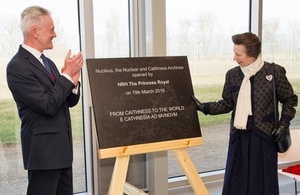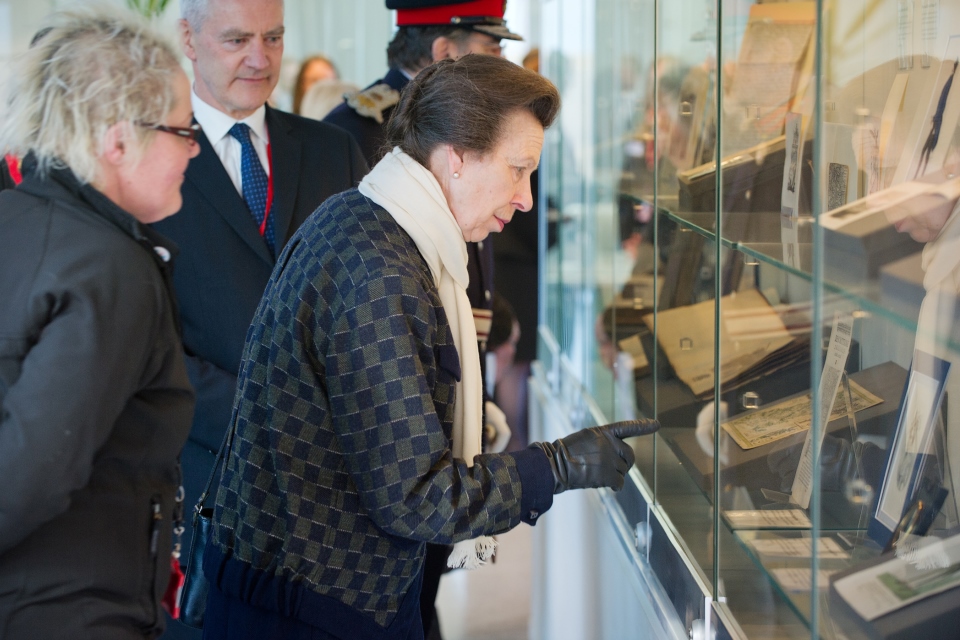Princess Royal unveils plaque at official opening of nuclear archive
Her Royal Highness The Princess Royal today unveiled a commemorative plaque marking the official opening of Nucleus (The Nuclear and Caithness Archives).

The Princess Royal unveiled a stone plaque to mark the official opening of Nucleus
The Princess Royal toured the NDA’s £21 million facility in Wick accompanied by Chief Executive Officer David Peattie, who said:
We are extremely honoured to have received a visit from The Princess Royal to open Nucleus. It has been fantastic to see this important project come to fruition as a resource to preserve records from the country’s nuclear industry, as well as historical material from the Caithness region.
Her Royal Highness was greeted on arrival by Her Majesty’s Lord Lieutenant of Caithness, Viscount Thurso. Also among the invited guests were the Lord Lieutenant’s wife Lady Thurso, former Lord Lieutenant Miss Anne Dunnett, MP Jamie Stone, MSP Gail Ross, representatives from Dounreay Stakeholder Group and local councillors.
During the tour, The Princess Royal met key staff from the archive’s operations team, who described how the documents were prepared, indexed, stored in a series of secure pods, with humidity and temperature kept stable to minimise the potential for deterioration. Mr Peattie addressed assembled guests and staff before inviting Her Royal Highness to unveil the plaque.
Nucleus has a dual role: as well as records from the country’s nuclear sites, Nucleus houses a collection of local Caithness records that have outgrown their existing home.

The Princess Royal toured the NDA’s £21 million facility in Wick
Since opening last February, an exercise has been under way to transfer plans, photographs, drawings and other records from diverse nuclear locations. The first collection to arrive came from nearby Dounreay and is being followed by Harwell records.
The painstaking ‘sift and lift’ process, expected to last at least 5 years, requires millions more documents to be examined before being either destroyed or carefully indexed and packaged for the move north.
Sellafield Ltd alone has more than 130,000 boxes of archived records in off-site storage, plus material on site and in various offices – estimated as stretching, if laid out, to more than 120km worth of paperwork. The 12 Magnox Ltd sites have a similar-sized collection in storage. The number of electronic records across the estate is believed to number hundreds of millions.
Eventually, decades-worth of records, both digital and hard copy, will be housed at Nucleus where they will be available for ongoing research. The facility will also fulfil an important role for a future geological disposal facility (GDF) that is being developed for the UK, acting as a central repository for detailed waste records that will be safeguarded for many generations.
Earlier this year, Nucleus was granted Place of Deposit status by The National Archive at Kew, following a rigorous assessment of all operational aspects. It is one of the largest accredited repositories outside London.
The building’s sleek, angular lines have also collected two prestigious design awards from the Architects’ Journal including Public Building of the Year 2017.